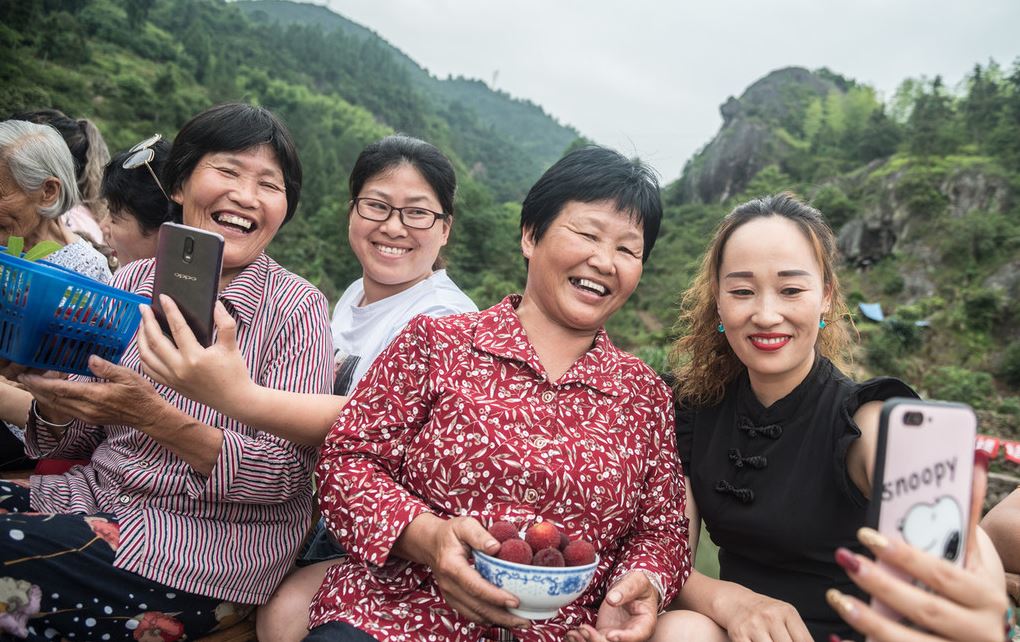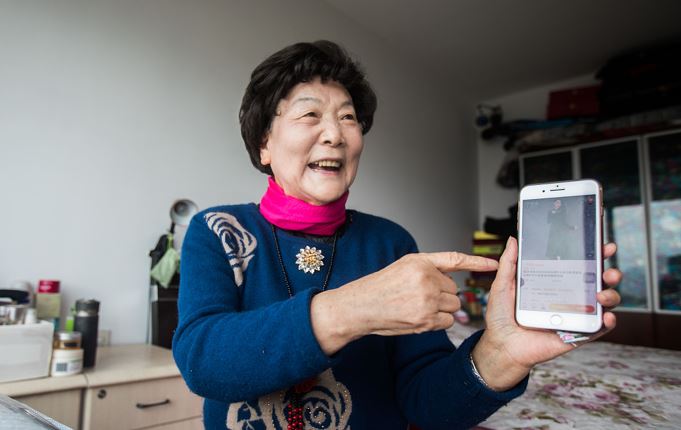
From the People's Daily App.
This is Story in the Story.
In a village located in East China's Zhejiang Province, livestreaming is enjoyed not only by young people but also by the elderly.
Elderly villagers have turned the popular medium from a purely social means to communicate into a money-making marketplace.
Seniors have entered the "new world" online with the help of their children, grandchildren, and even shopping guides at supermarkets.
Compared with the younger generations who are busy with school, and the middle-aged who have heavy workloads, the elderly have more free time, more money, and a stronger demand to use their free time.
It wasn’t long ago when this demographic rarely used the internet, but now it seems that’s all they want to do.
Today’s Story in the Story looks at how China’s “Silver-haired” generation is redefining the usefulness of the internet and how streaming platforms can be used as tools for commerce.

Senior residents in Sidu village sell their yangmei via livestreaming with the help of young people on June 12, 2019. (Photo: IC)
In Sidu, a small village in Xianju County, there are 26 hectares dedicated to yangmei, a dark, burgundy red subtropical fruit that tastes juicy and sweet. The majority of the area is managed by the elderly.
In an effort to increase sales, they decided to try livestreaming, and enlisted the help of the local youngsters.
Along with selling yangmei, the livestreaming get-together on Wednesday also improves local awareness through introductions and songs from these senior anchors.
Chen Zhanglong, 73, recently completed his registration to an anchor on Taobao, China's largest e-commerce platform, with the assistance of his daughter.
He said he has planted yangmei for more than 30 years, and the revenue from the fruit is the main source of income for his family, though he confessed the planting work is rather laborious.
Among the middle-aged and senior netizens, more than 65 percent aged over 40 spend more than a quarter of their free time on mobile phones, while heavy users - who spend over half of their free time there - account for about 30 percent.

An 80-year-old woman shows the Taobao app open on her phone in Hangzhou, East China's Zhejiang province, on Nov 21, 2018. (Photo: IC)
Social contact, news and video, which account for 70 percent, 40 percent and 32.5 percent, respectively, are the main purposes of elderly internet users spending time on their phones.
The demand for light entertainment content, like short-videos and singing by elderly internet users also cannot be ignored.
E-commerce is nothing new for these people. About 89 percent of internet users aged 40 to 50 have experienced online shopping, while the figure stands at 68 percent for those aged 50 and above.
"I mainly use JD or Taobao for online shopping, and I need a large computer screen to carefully select goods," one elderly woman said.
Clothing, footwear, and daily necessities account for 72 percent of the main choices of online shoppers aged 50 and above.
Mobile payment also is popular with the elderly. About 80 percent of internet users aged 50 and above often choose mobile payments for offline shopping.
"My most used app is WeChat, and I have added more than 30 friends, mainly my relatives and friends of the same age; I also like watching videos, two to three hours a day, like TV dramas on Tencent video, and short videos on Xigua video,” said a retired 62-year-old woman in Beijing.
(Produced by Nancy Yan Xu, Lance Crayon, Brian Lowe, and Chelle Wenqian Zeng. Music by: bensound.com. Text from China Daily.)


